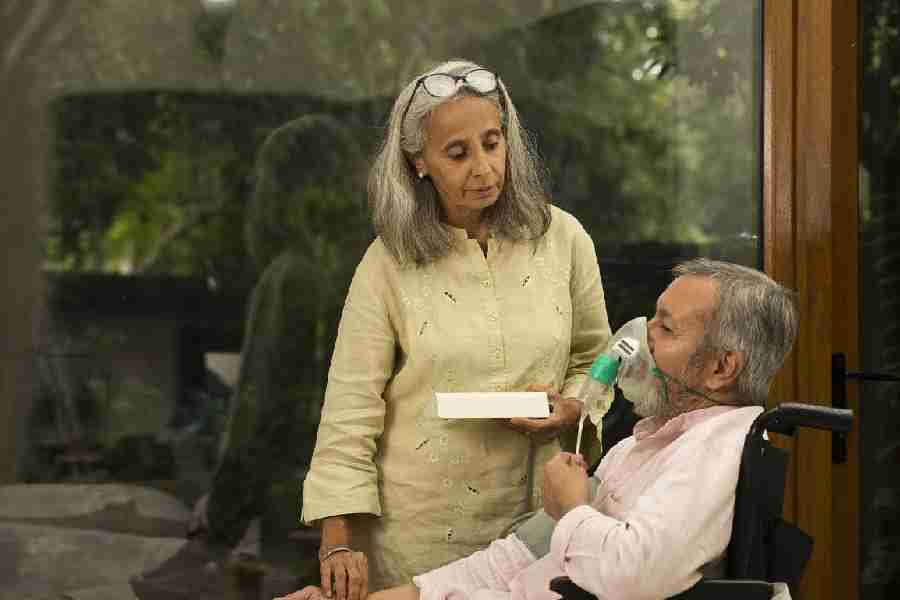It is crucial to recognise that post-intensive care unit (ICU) attention plays a significant role in achieving positive outcomes and quality of life for critical care survivors. Many patients require an extended period of recovery and rehabilitation, as impairments in physical, mental and cognitive health may persist or develop after ICU treatment, collectively known as post-intensive care syndrome or PICS.
Post ICU impairments like weakness, breathing difficulties, anxiety, depression, post-traumatic stress disorder and deficits in attention, memory and executive functions may take months to recover.
In India, most cannot afford long stays in private hospitals for this post-ICU recovery care. There is a shortage of long-term care facilities too. Government hospitals, with their huge patient loads, cannot accommodate these patients for long. Therefore, the involvement of families and social support becomes crucial, allowing patients to receive care at home with assistance from community care- givers and occasional consultations from local practitioners.
Discharged patients may sometimes require feeding tubes, urinary catheters or oxygen for a period of time as they regain their normal phy-sical functions. However, family members may find it challenging to manage these needs.
In India, the availability of formally qualified professionals for home care is limited both in rural and urban areas. Hiring private caregivers is impossible for many due to economic constraints. Thus, it is essential to strengthen the system by involving families in home care. This concept of patient and fa-mily engagement or PFE advocated by the Libretto Consortium PFE Integration Group in the US promotes involving willing and capable family members in daily care right from the ICU days and familiarising them with the tasks they will need to perform when the patient returns home.
The ICU team can train family members in essential tasks such as proper handwashing, feeding through tubes, maintaining catheters, handling oxygen and non-invasive respiratory support devices, basic physiotherapy and providing psychological support. Teaching them to recognise signs that require immediate medical attention can enhance their confidence and competence. Providing easy checklists for each task and offering telephonic support when needed can improve both quality and cost control.
The definition of “family” in the PFE protocol is broad, encompassing any trusted individual chosen by the patient or treating team, regardless of biological or legal relationships. The success of family involvement in home care relies on starting the process during the ICU stay itself and then extending it into society.
However, not all families have capable caregivers at home due to incompatible family structures or professional commitments. Additionally, some family members may struggle to cope with critical illness and develop signs of PICS themselves. This has been termed PICS-family in medical literature. In such cases, care must be provided by hired, often poorly trained, caregivers. Qualified nurses for home care are scarce in most parts of India, making it essential to establish short vocational hospital-based training programmes for lay community caregivers. Their curriculum should be tailored to suit their educational background.
Another challenge is the lack of access to qualified specialist doctors or paramedics in many peripheries. Accessible general practitioners (GPs) often lack specific knowledge about post-ICU problems. Therefore, orienting GPs can be beneficial. In remote areas, where even qualified GPs are unavailable, unqualified community practitioners can receive short vocational training to provide basic post-ICU rehabilitation care and identify points of referral to doctors. Collaboration between physicians and social health workers advocated in a recent policy document by the Royal College of Physicians, UK, can benefit post-ICU patients too.
At the hospital level, establishing multi-disciplinary post-ICU clinics that home-based patients and even family sufferers can visit as needed can be beneficial. Telemedicine services involving post-ICU clinic personnel can help address many issues in peripheries only, thereby preventing unnecessary referrals and travel costs.
It is important to acknow- ledge that developing such a non-governmental private caregiving workforce is not an ideal policy choice, but rather a necessary compromise due to resource limitations in many areas of India. It is obvious that these caregivers can never be substitutes for qualified professionals. But following the dictum of “something is better than nothing” may prove to be effective for the essential community-based recovery care of post-ICU patients in many resource limited peripheries and economically challenged societies of our vastly populated country.
In the ICU of our government teaching hospital, we have been training family members for post-ICU home care for a long time with excellent results. However, large studies encompassing different geographic and socioeconomic populations can determine the efficacy of these models, which can potentially be extended to home-based cancer care, elderly care and dementia care.











